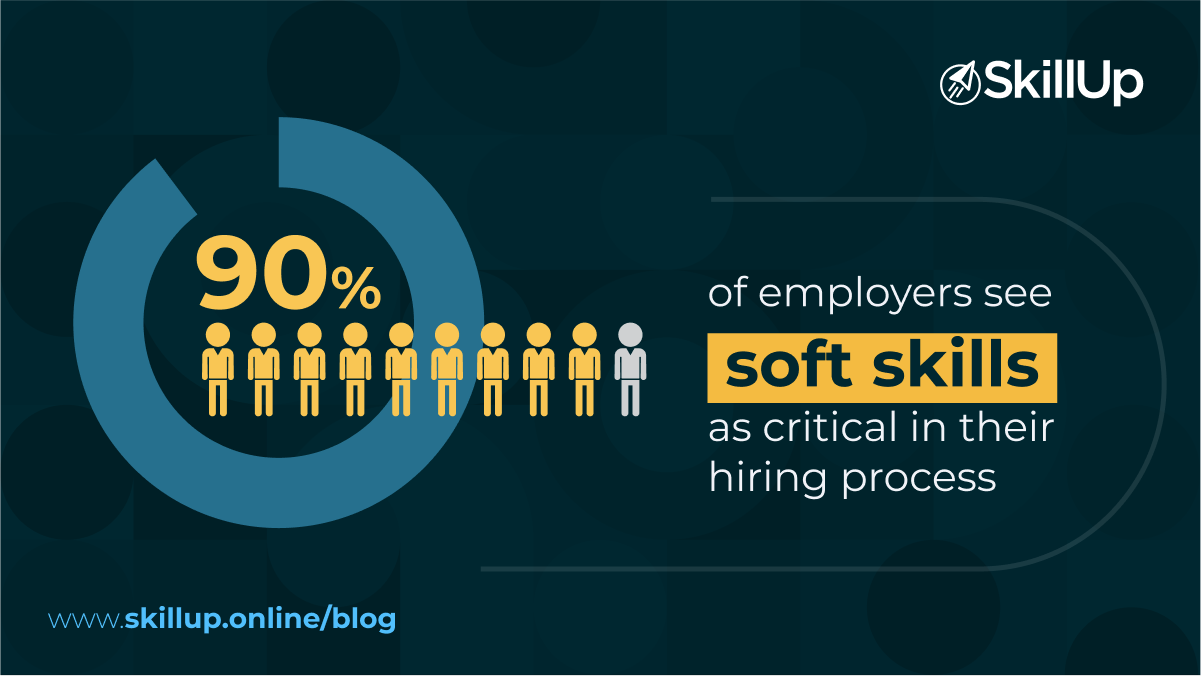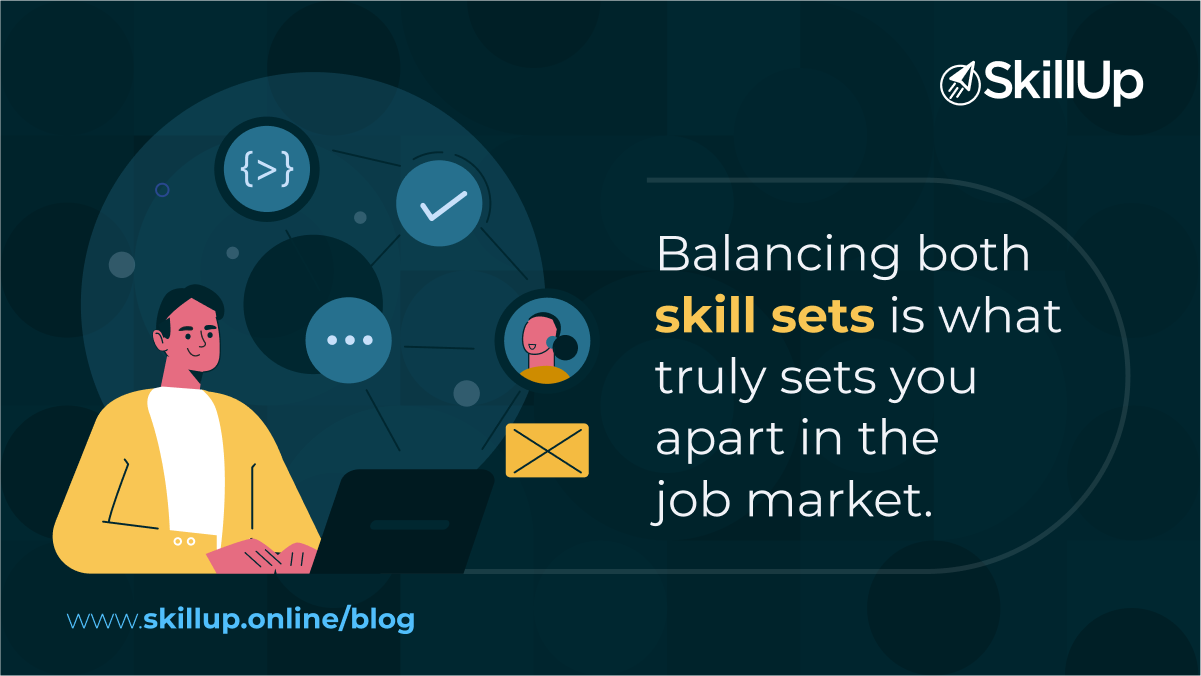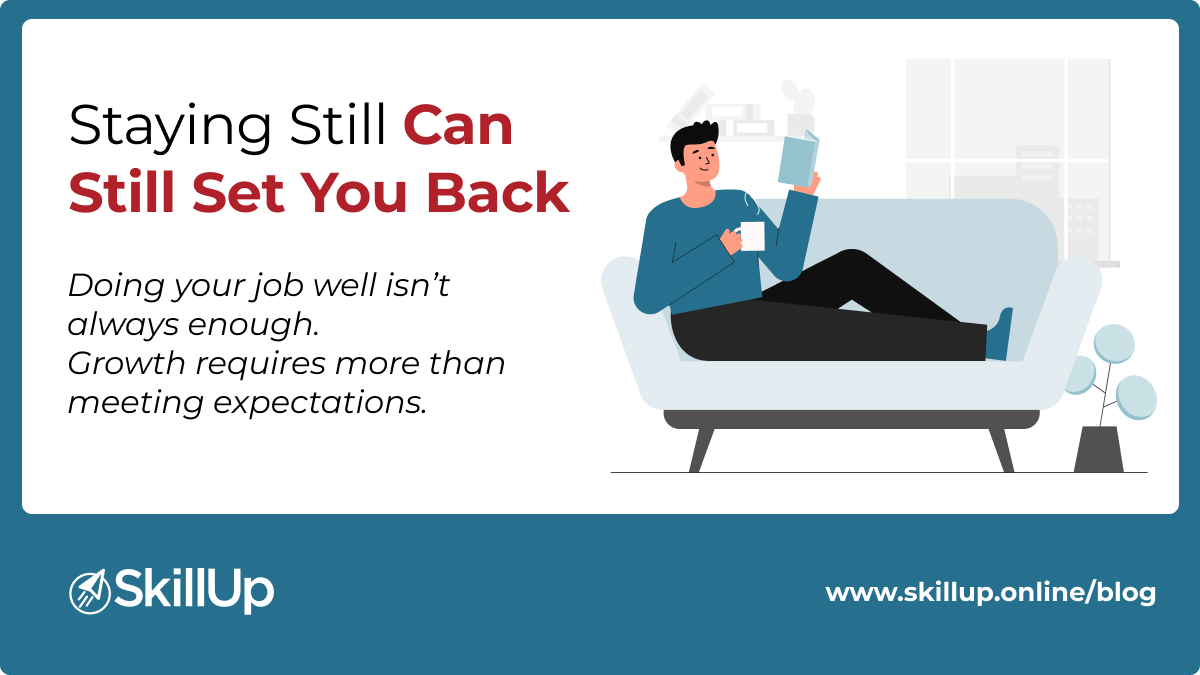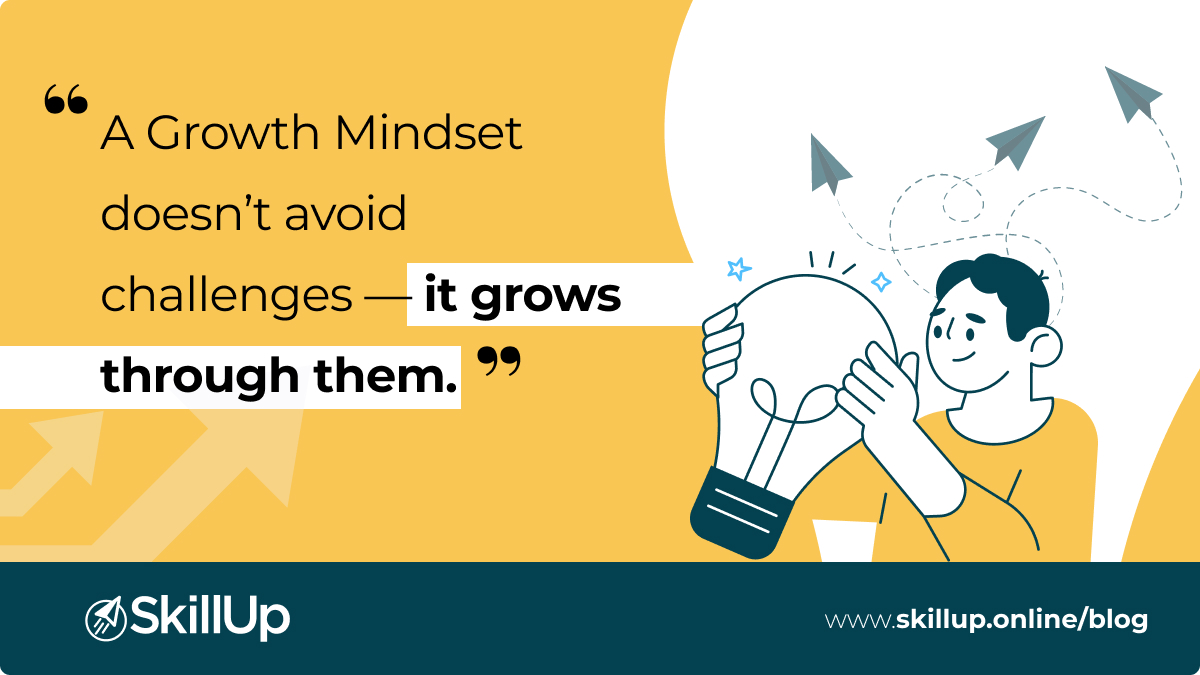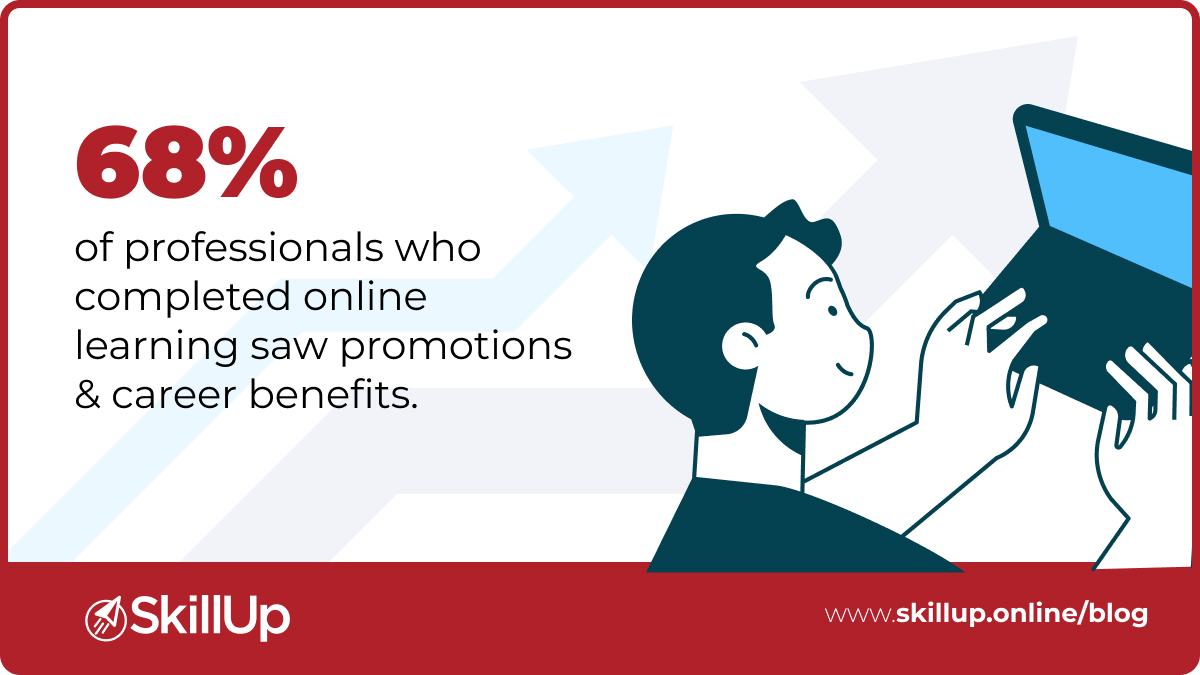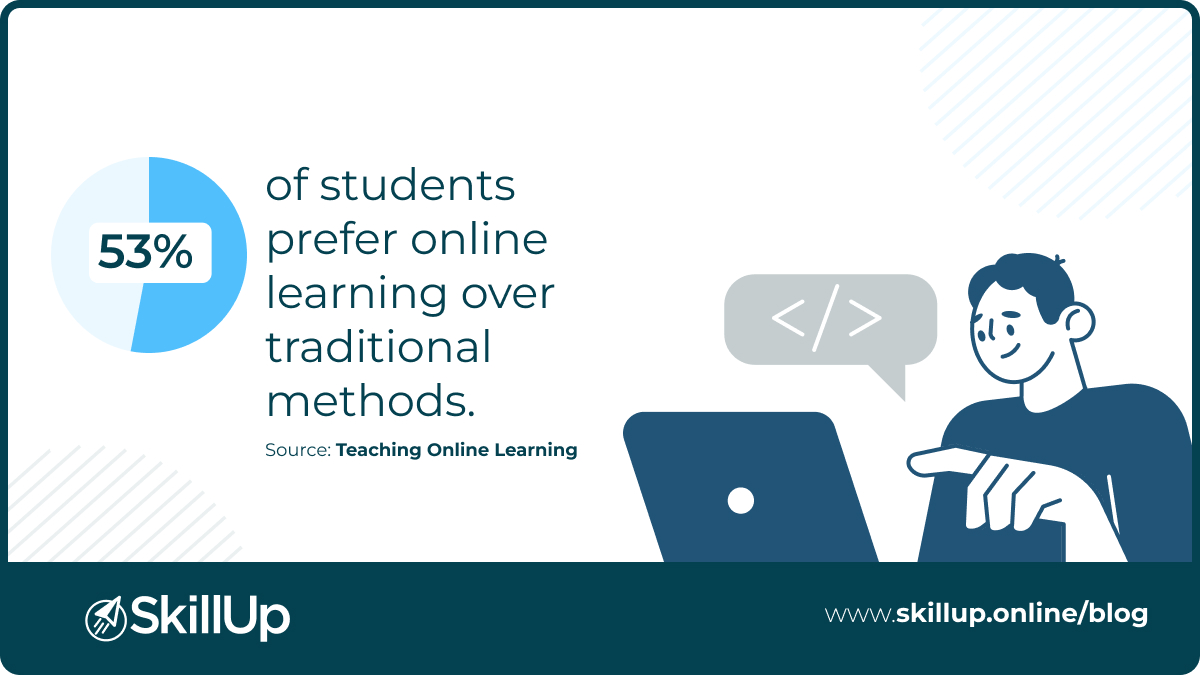90% of employers see soft skills as critical in their hiring process. This means that to stand out in this competitive job market, you need more than just technical expertise.
Whether you’re aiming to land your first job or advance in your career, it’s the combination of your tech skills and soft skills that will truly make you shine. Employers are not just looking for what you know but also how you apply it and interact with others in a team.
Let’s explore how you can effectively blend these skills to meet what employers are really looking for and enhance your career prospects.
Why Soft Skills Matter More Than You Think?
You’ve probably heard the term “soft skills” thrown around a lot, but what does it really mean? Soft skills are those interpersonal qualities that make you a great team player and communicator. Think about skills like empathy, adaptability, problem-solving, and communication. These are the skills that help you navigate the workplace, collaborate with colleagues, and manage time effectively.
For example, imagine you’re working on a project with a tight deadline. You need to coordinate with multiple team members, manage unexpected challenges, and keep everyone motivated. Your technical skills might get the work done, but your soft skills are the ones that help you lead the team, resolve conflicts, and keep everyone on track.
Tech Skills Are the Foundation of Your Career
Don’t get it wrong— there is no denying the fact that technical skills are the bedrock of any job role. They are the specific abilities and knowledge you need to perform your tasks efficiently. If you’re in data analytics, for instance, tech skills might include proficiency in Python, SQL, or data visualization tools like Tableau. For a graphic designer, it might be expertise in Adobe Creative Suite. Whatever your field, having strong technical skills shows that you can handle the core responsibilities of the job.
But here’s the kicker: Technical skills alone aren’t enough. Sure, you can write impeccable code or create stunning designs, but can you explain your ideas clearly to a non-technical team? Can you adapt when the project scope changes? These are the scenarios where your soft skills shine.
Why You Need Both?
So, why should you focus on both soft and tech skills? Imagine having excellent technical abilities but struggling to communicate your ideas effectively. Or consider being great at teamwork but lacking the tech skills needed to excel in your role. Balancing both skill sets is what truly makes you stand out.
Picture this: You’re an impeccable coder, effortlessly crafting flawless algorithms, but when it comes to explaining your project to a non-technical team, the room falls silent. Or imagine you’re the ultimate team player, always ready to lend a hand, but your lack of technical expertise leaves you struggling to meet project deadlines.
Balancing both skill sets is what truly sets you apart in the job market. It’s not just about being a great coder or a fantastic communicator—it’s about being the complete package. With top-notch tech skills, you demonstrate your ability to handle the core responsibilities of your role. But combine that with strong soft skills, and you become a dynamic force capable of navigating complex projects, leading teams, and driving innovation.
How Do You Find the Right Mix of Soft and Tech Skills?
It’s all about self-assessment and being open to learning. Start by evaluating your strengths and weaknesses. Are you great at analyzing data but struggle to present your findings to a non-technical audience? Or maybe you’re a natural leader but could use a little help sharpening your technical toolkit.
The key is to continually develop both sets of skills. One way to do so is by taking up soft skills or human skills courses online. Platforms like SkillUp Online offer various human skills courses that can be a great starting point.
You can also attend workshops, seminars or even volunteer for projects that push you out of your comfort zone. And don’t forget about networking—connecting on platforms like LinkedIn with professionals in your field can provide insights into the skills that are most valued in your industry.
What Kind of Soft Skills Are Employers Looking for When Hiring Someone?
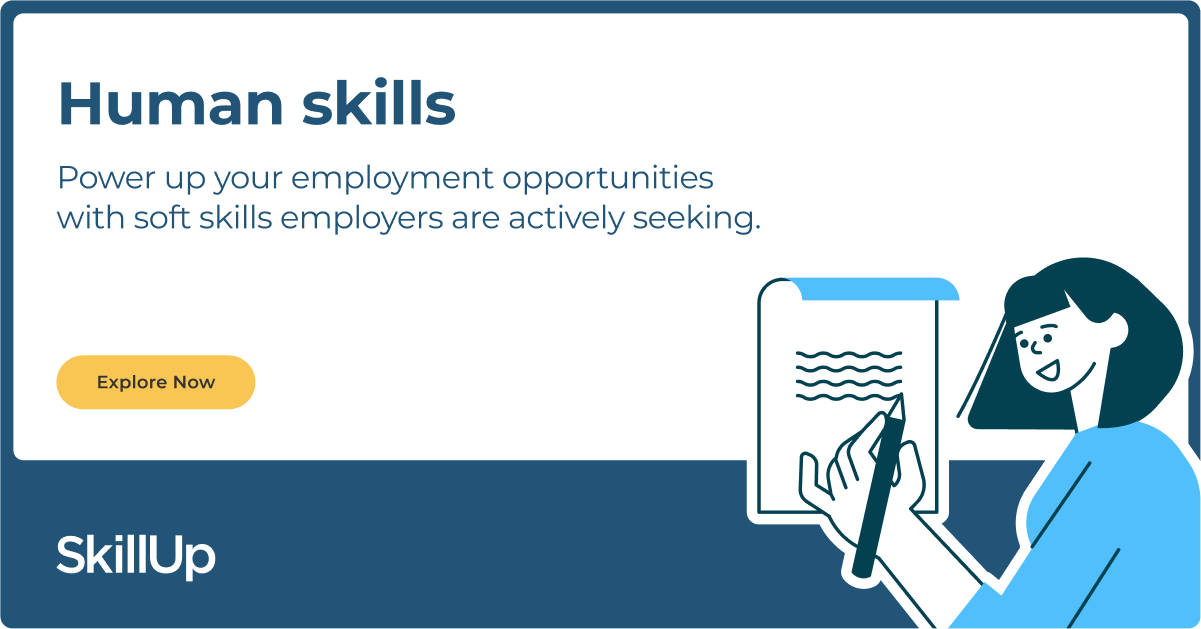
Now, let’s get to the big question: What are employers looking for? Because soft skills often translate to better teamwork, leadership, and problem-solving abilities, but there’s more to it…
Top 9 soft skills employers look for when hiring:
- Creative problem solving and innovation: Show employers you’re a problem solver who thinks creatively. Highlight on your resume how you’ve tackled challenges with innovative solutions.
- Communication skills: Good communication is key. Demonstrate your ability to clearly convey ideas and connect with others on your resume and in interviews.
- Time management: Employers value time management, especially in remote work. Share how you effectively organize tasks and meet deadlines.
- A growth mindset: Show your willingness to learn and adapt. Include examples on your resume where you learned new skills to keep up with changes.
- Emotional intelligence: Emphasize your ability to understand and manage emotions. Use examples that show how your empathy has improved workplace dynamics.
- Collaboration: Prove you’re a team player who values collaboration. Highlight times when you worked well with others to achieve success.
- Adaptability: Adaptability is a must in today’s fast-changing world. Share stories of how you’ve successfully adapted to new situations.
- Active listening: Show you’re an active listener by engaging fully in conversations. In interviews, demonstrate attentiveness and ask thoughtful questions.
- Leadership: Leadership is about guiding and motivating others. Highlight times when you led a team or project and made a positive impact.
Think of it this way: Employers are not just hiring a set of skills; they are hiring a person who will fit into their team, culture, and company values. They want someone who can collaborate effectively, lead when needed, and handle stress without breaking down. And guess what? These are all rooted in soft skills.
How to Showcase Your Skills to Employers?
When it comes to landing your dream job, showcasing both your soft and tech skills is crucial. But how do you do that? It’s simpler than you think!
Update Your Resume: Make sure your resume highlights not just your technical skills but also your soft skills. Use action verbs like “led,” “collaborated,” and “managed” to show employers how you have successfully used these skills in past roles.
Prepare for Behavioral Interviews: Employers often use behavioral questions to gauge your soft skills. Be ready to discuss specific examples where you’ve demonstrated leadership, teamwork, problem-solving, or adaptability.
Demonstrate Skills in Real-Time: During interviews, you’re not just talking about your soft skills—you’re showcasing them. Be attentive, communicate clearly, and engage with your interviewers to show that you’re not only technically proficient but also a great cultural fit.
Build a Portfolio: If you’re in a field where a portfolio is appropriate, make sure it includes projects that highlight both your technical expertise and your ability to work as part of a team or lead a project.
So, What’s Next?
Whether you’re just starting your career or looking to make a change, remember that it’s not a battle of soft skills vs. tech skills. It’s about building a robust skill set that makes you an invaluable asset to any team.
Start by identifying where you need growth and take proactive steps to become the candidate every employer wants to hire. After all, in today’s job market, it’s not just about landing a job—it’s about thriving in it.
If you’re ready to start improving your skills, explore our human skills courses or reach out to our Learner Support Team at [email protected] for personalized guidance. We’re here to support you on your journey to career excellence.
SkillUp Online
